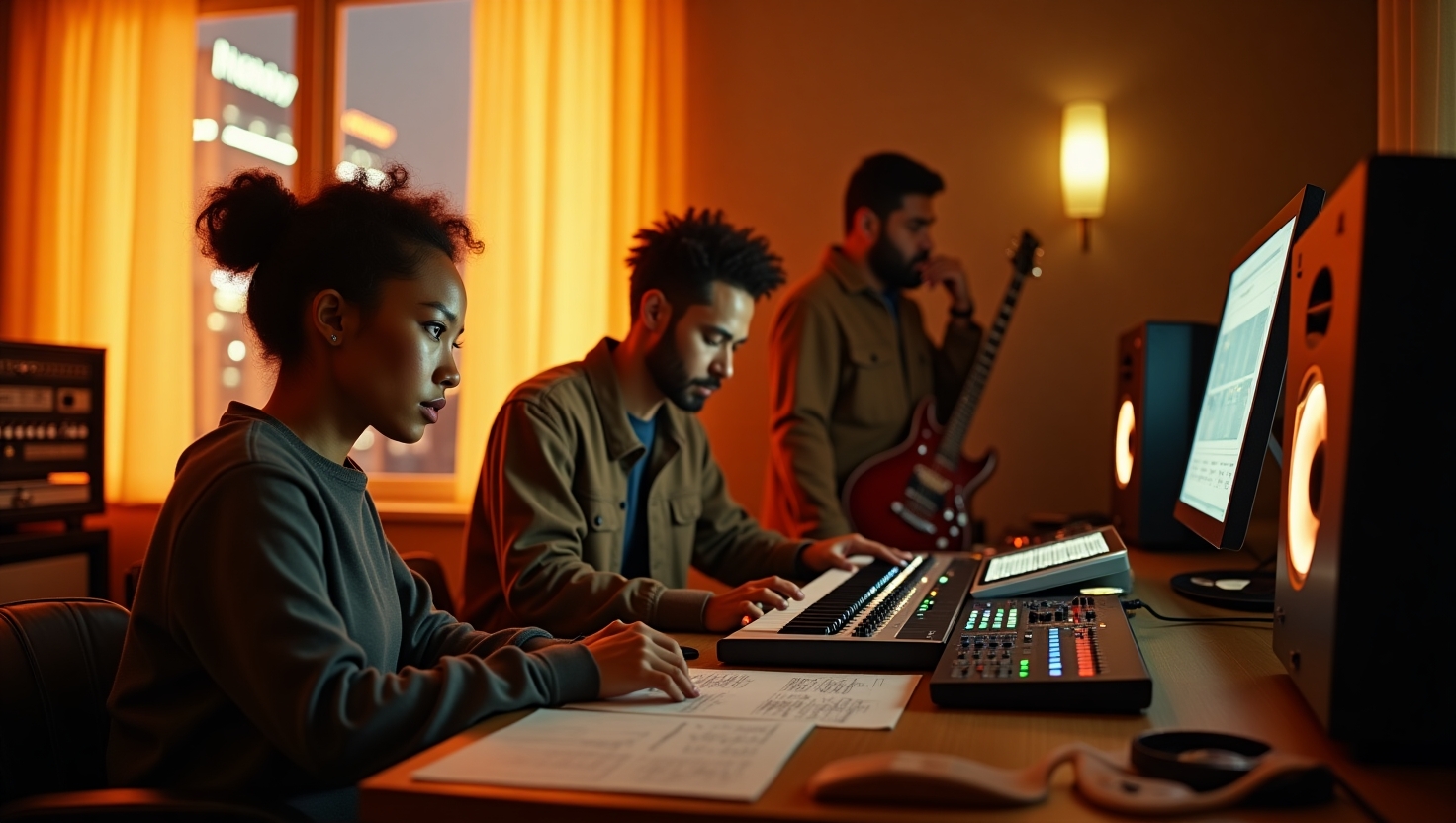The Rise of AI Music: Navigating the New Era of Sound
Introduction
In a world where artificial intelligence is reshaping countless industries, the music sector is not far behind. The advent of AI music has revolutionized how tracks are produced, consumed, and critiqued within the music industry. By pushing the boundaries of technology and creativity, AI-generated music is challenging traditional perceptions and setting the stage for what could be a seismic shift in our understanding of music-making. But what does AI music truly entail, and what are the implications for artists’ rights and the integrity of artistic expression?
Background
To understand the significance of AI music, an exploration into its origins is essential. Emerging from sophisticated algorithms, AI music combines the precision of technology with the nuance of human ingenuity. Initially, advancements in AI served as tools to aid musicians in innovation, helping create unique harmonies or simulate instruments. However, these tools swiftly evolved, capable of crafting entire compositions that begin to dominate platforms like Spotify and Deezer.
This technological birth of AI music can be likened to the shift from traditional film photography to digital photography. At first, it served as an aid to traditional methods, but eventually, digital began to replace its predecessor. Historical markers in the development of AI music range from early algorithmic compositions to current AI engines creating intricate pieces autonomously. The music industry initially reacted with skepticism, akin to the early days of synthesizers. However, the penetration of AI compositions onto major streaming services signifies their growing acceptance if not begrudging acknowledgment by artists and producers alike.
Trend
Today, AI Slop music—a term coined to describe the sometimes unusual, even absurd, output of AI—commands attention. These tracks often feature titles like ‘Sensual Butt Songs’ or themes like ‘Santa’s Alleged Coke Habit,’ deliberately engineered to provoke or entertain. Notably, 18% of new tracks on platforms like Deezer are flagged as AI-generated (source: Wired).
This influx challenges our traditional metrics of music appreciation. AI develops tracks in hours, using data from countless previous hits, to construct compositions that are algorithmically catchy. Yet, the question lingers: is this genuine creativity, or simply pattern recognition?
In this transformative period, listeners find themselves bewildered—do they embrace the novelty of AI music or cling to the human touch that historically defined artistry?
Insight
Within the evolving landscape of AI music, insights from industry leaders illuminate both opportunities and challenges. AI’s ability to exponentially amplify creativity is attractive to many artists willing to experiment beyond conventional soundscapes. However, the rise of automated compositions concerns those vigilant about artist rights and authenticity in the music industry.
BannedVinylCollection, an emerging entity in this arena, states, “Each song can take hours to make,” highlighting AI’s potential for efficiency and innovation. Yet, contrasting opinions like those from Brace Belden, who asserts, “I fully believe that all streaming platforms shouldn’t allow the music to be uploaded,” spotlight apprehensions regarding authenticity and revenue distribution (source: Wired).
The debate here mirrors historical tension in the music industry—akin to the reception of auto-tune or electronic dance music debates—and points to a fundamental question: who owns the output of AI, and what safeguards should exist for human artists?
Forecast
As AI music marches forward, its long-term impacts on the music industry are ripe for speculation. A crucial forecast involves the potential revision of copyright laws, adapting to the blurred lines between machine and human creation. Artists’ roles are likely to evolve into hybrid forms, where AI serves not as a threat but a collaborator.
Predictions also suggest a shift in listener preferences, possibly inching toward the acceptance of polished, AI-generated soundscapes for casual listening while maintaining an affinity for human authenticity in live performances. We may witness a world where both exist symbiotically—AI fuels creativity, while human artistry leads the performance.
Call to Action
As AI music propels into the mainstream, participation in the unfolding discourse is imperative. Fans and creators alike must engage with the implications of this technology—its revolutionary potential and its challenges. Join our mailing list for updates on this ever-evolving soundscape and share your thoughts on the controversial rise of AI-generated tracks. How do you perceive the fusion of technology with creativity? Is it an innovation to be embraced or a disruption demanding regulation? Join the conversation and help shape the future of sound.

